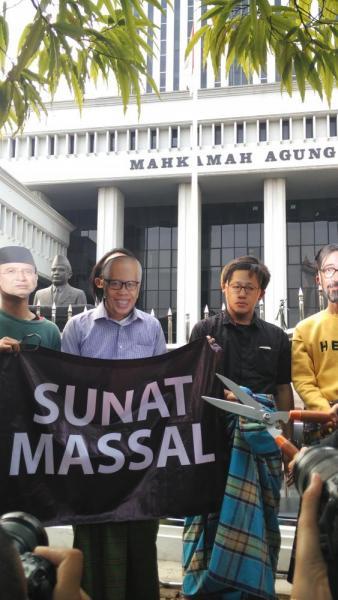Monitoring Report Trends in Corruption Cases Prosecution 1st Semester of 2020

Corruption is still main problem in Indonesia. Corruption causes poverty, inequality, injustice, poor public services, delaying investments and other impacts.
In order to eradicate the corruption problems, the government uses two strategies. First, preventive strategy and second, repressive efforts strategy or to tackle the corruption cases. One of the things that should be considered in the context of eradicating corruption is the efforts to suppress corruption cases carried out by law enforcement. The purpose is to provide a deterrent effect for criminals or potential criminals to commit corruption crimes. The way can be by applying corporal punishment or asset seizure to impoverish corruptors.
In the process of handling corruption cases, public scrutiny is an important key to implementing check and balances mechanisms to prevent abuse of power by law enforcement. Therefore, law enforcement must convey information on the handling of corruption cases aspects of the investigation. It does not conflict with Law Number 14 year 2008 on Public Information, Article 17. In practice, ICW sees law enforcement as not yet transparent and accountable enough about the handling of corpus cases in the aspect of investigation, especially in the Police and Prosecutor's Office. Unlike the Corruption Eradication Commission. The anti-corruption agency routinely conveys information about corruption cases through press releases on its website.
Information disclosure is also seen in the Monitoring and Evaluation of the Openness Information of Public Bodies in 2019 conducted by the Central Information Commission. Based on the Central Information Commission Decision No. 10/KEP/KIP/VIII/2019 on The Method and Technique of Monitoring and Evaluation of Public Information Disclosure of Public in 2019 in the eighth dictum mentioned that there are 5 (five) qualifications for assessment of public namely: 1). Informative (values between 90 to 100); 2). Towards Informative (values between 80 to 89.9); 3). Quite Informative (values between 60 to 79.9); 4). Less Informative (values between 40 to 59.9); and 5). Not Informative (value less than 39.9). The Central Information Commission has submitted the results of its Monitoring and Evaluation in the form of documents uploaded into the (hyperlink). Unfortunately there are only 3 (three) qualification information: informative, towards informative, and quite informative. While information about qualifications is less informative and not informative is not conveyed on the page.
Based on the results of Monitoring and Evaluation of Public Information Disclosure, KPK is in the category of Public of Non Structural Institutions that are ranked towards informative. While the Police and Prosecutor's Office are not in the 3 (three) qualifications of its information. The conditions for eradicating corruption can also be seen in the Rule of Law Index report in 2020. In general, Indonesia is ranked 59th out of 128 countries with a score of 0.53 points on a scale of 0-1. The lower the value, the worse the legal state index, and also vice versa. In 2019, Indonesia was ranked 62nd out of 126 countries with a score of 0.52 points. Rankings increased from the previous year. Indonesia's points increased by 0.01 points only.
One indicator in ROLI is the absence of corruption. From these indicators there are 4 (four) variables namely: 1). Absence of corruption in the executive branch; 2). Absence of corruption in the judiciary; 3). Absence of corruption in the police/military; and 4). There is no corruption in the legislature. Based on indicators of lack of corruption in ROLI in 2020, Indonesia is ranked 92nd out of 128 countries with a score of 0.39. While in 2019 Indonesia was ranked 97th out of 126 countries










